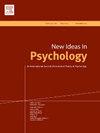Environmental resource theory: An integrative perspective on human habitat preferences and emotional responses to the environment
IF 2.9
3区 心理学
Q2 PSYCHOLOGY, EXPERIMENTAL
引用次数: 0
Abstract
Although modern humans occupy many habitats, human habitat preferences are relatively specific. We tend to prefer environments containing resources and avoid barren environments. Much research has focused on comparing emotional, motivational, and cognitive responses to urban and natural environments, which may be a false dichotomy. Considering environmental resources explicitly, the present article argues that resource content and resource exploitability are evolutionary relevant aspects of any environment. Findings from studies on environmental preferences and responses to urban and natural environments are reinterpreted in terms of environmental resource theory. The dynamics of moving from low to high resource environments can explain most findings within this area of research and environmental resource theory offers a different perspective on affective and cognitive restoration in nature. The relevance for climate change and environmental degradation is discussed.
环境资源理论:人类栖息地偏好与环境情绪反应的综合视角
尽管现代人类占据了许多栖息地,但人类的栖息地偏好是相对特定的。我们倾向于选择资源丰富的环境,避免贫瘠的环境。许多研究都集中在比较对城市和自然环境的情感、动机和认知反应,这可能是一种错误的二分法。本文明确地考虑了环境资源,认为资源含量和资源可利用性是任何环境的进化相关方面。从环境资源理论的角度重新解释了环境偏好和对城市和自然环境的反应的研究结果。从低资源环境到高资源环境的动态变化可以解释这一研究领域的大多数发现,环境资源理论为自然界的情感和认知恢复提供了不同的视角。讨论了气候变化和环境退化的相关性。
本文章由计算机程序翻译,如有差异,请以英文原文为准。
求助全文
约1分钟内获得全文
求助全文
来源期刊

New Ideas in Psychology
Multiple-
CiteScore
4.80
自引率
3.80%
发文量
37
期刊介绍:
New Ideas in Psychology is a journal for theoretical psychology in its broadest sense. We are looking for new and seminal ideas, from within Psychology and from other fields that have something to bring to Psychology. We welcome presentations and criticisms of theory, of background metaphysics, and of fundamental issues of method, both empirical and conceptual. We put special emphasis on the need for informed discussion of psychological theories to be interdisciplinary. Empirical papers are accepted at New Ideas in Psychology, but only as long as they focus on conceptual issues and are theoretically creative. We are also open to comments or debate, interviews, and book reviews.
 求助内容:
求助内容: 应助结果提醒方式:
应助结果提醒方式:


